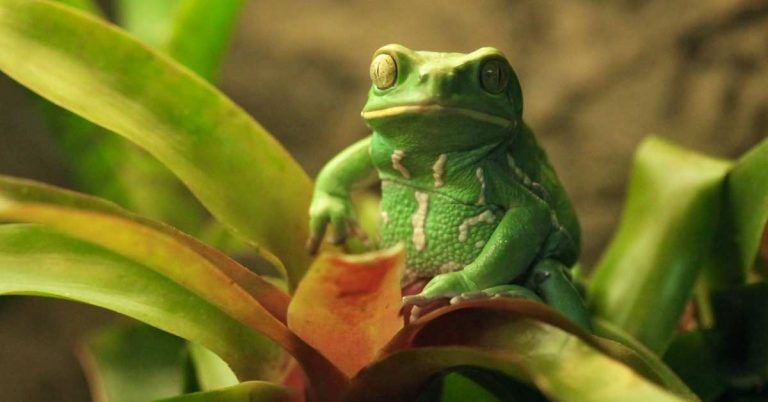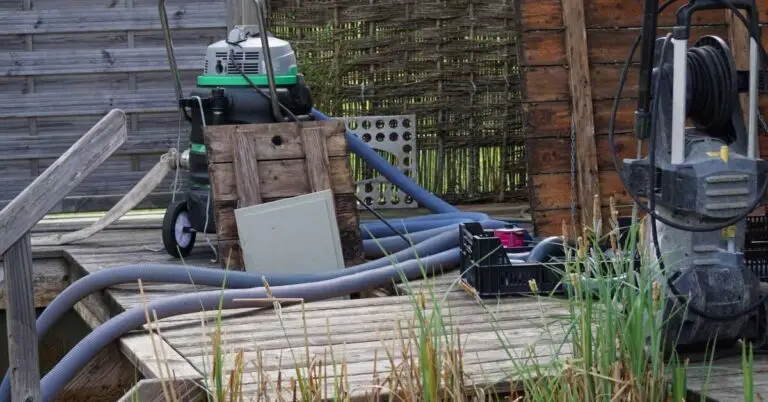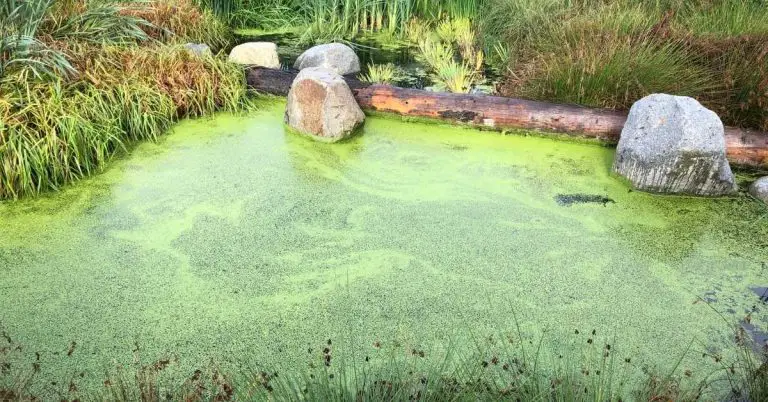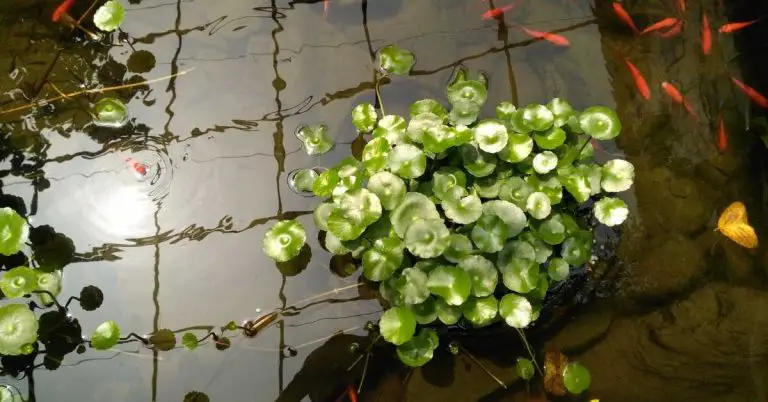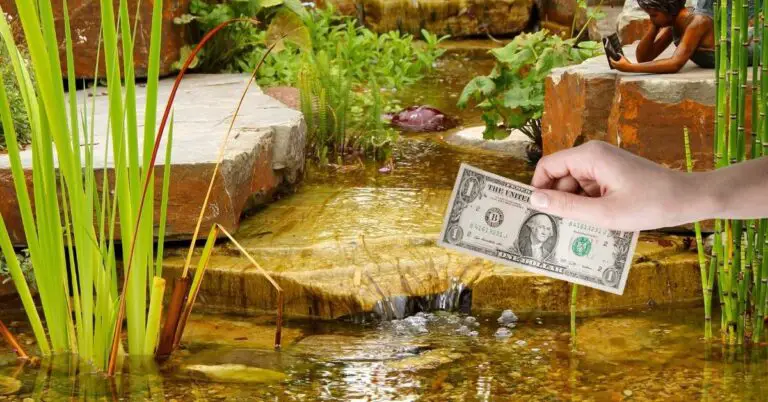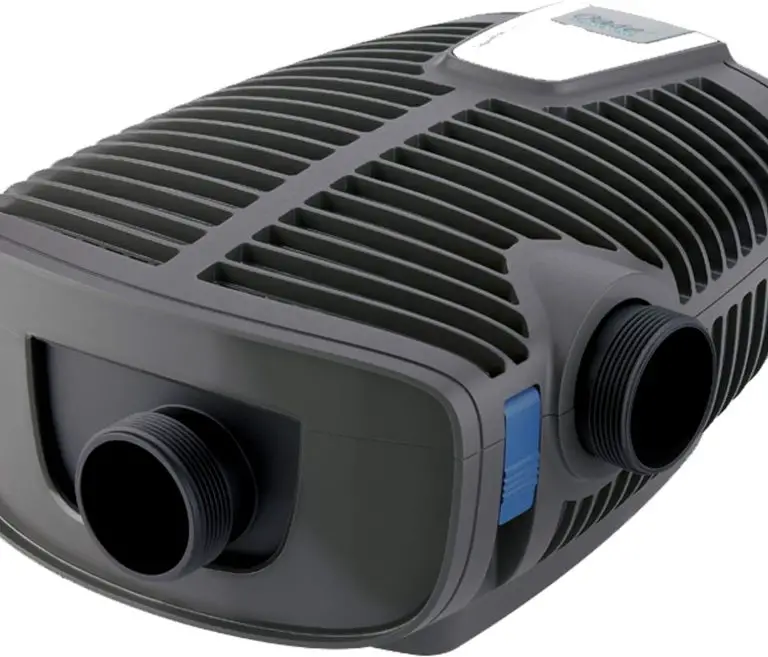Will A Backyard Pond Attract Rats And Mice?
Ponds are amazing and beautiful places. They attract all kinds of wildlife, but that also includes unwanted pests.
Ponds often become a major source of food and fresh water for both rats and mice. Rats are very good swimmers and will feast on everything edible in your pond including any fish you might have. Rats may even frequent a pond to hunt other small birds and their eggs. A common sign that rats are present is a sudden drop in the water level as they chew through the pond liner via rat holes leading to the bottom of the pond.
Let’s discuss what risks rats and mice pose, why rats are attracted to your pond and how to prevent them.
Rats Can Cause Your Pond To Drain Water
Rats are very clever creatures and will find all sorts of different ways to get at your pond. One of the most common, believe it or not, is through the bottom.
Rats will arrive at your pond while burrowing through a rat or mouse hole. Once they reach the bottom of your pond they will continue to chew through the pond liner. If the pond liner breaks, and it probably will, your pond will begin to lose water.
Often times the first sign of rats interfering with your pond is a significantly lower water level.
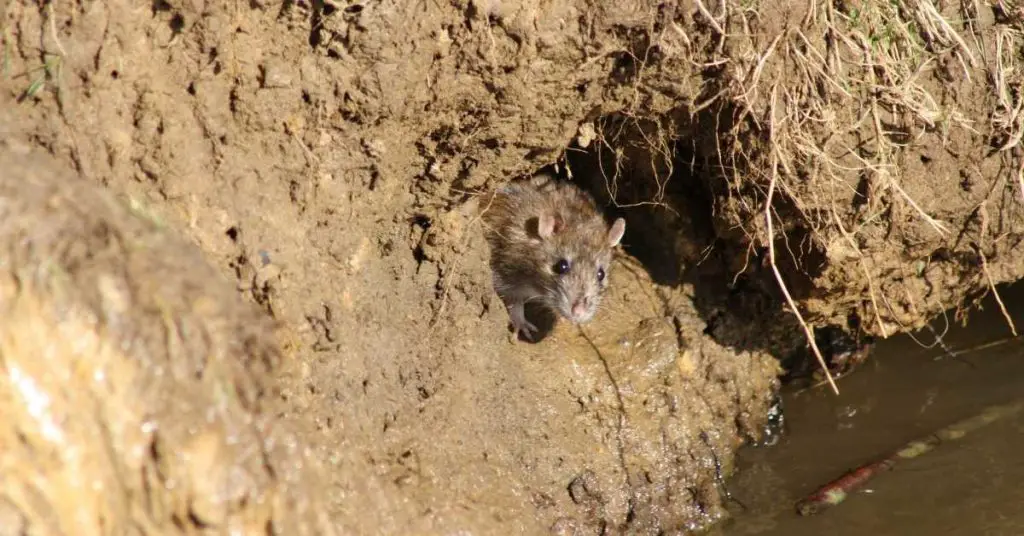
Rats Transmit Several Diseases Harmful To Humans
Going back thousands of years, rats are known for spreading diseases. And it’s not just a legend either, rats can spread potentially harmful diseases via the bacteria they leave behind.
One of the most harmful of these diseases is known as Weils Disease. This disease is potentially fatal if transmitted to humans and has several symptoms including fever, headache, nausea, muscle aches as well as chest pain and jaundice.
Rats can also carry other potentially fatal diseases such as hantavirus, leptospirosis, Tularemia and salmonella.
Rats and other vermin spread these diseases primarily through their urine. This can become a problem if rats are regularly making a home in and around your pond and then urinate on the grass and plants around it. And since the bacteria can remain active for up to a month, this can pose a risk to anyone laying in the grass, especially young children or anyone else who is laying down or on their hands and knees.
Rats Will Eat Excess Fish Food At Your Pond
Rats are always in search of food, so it shouldn’t be any surprise that this is the primary reason why they’ve come to your pond.
As is well known, rats will eat just about anything. This is why they are so attracted to houses that are full of food. But garden ponds provide lots of food sources as well.
Probably the most tempting and easiest of all those food sources is the fish swimming in your pond. Rats are very good swimmers and will definitely try to take out any very small or young fish if your pond is too shallow.
But more likely, the rats are attracted to the food you feed your fish. This can include any extra fish food floating on the surface of the water as well as anything that might have accidentally spilled over in the plants and grass around the pond.
So this is a warning that you should never overfeed your fish. Fish can derive most of their nutrients from the pond’s ecosystem, if it’s well balanced, so you should only be feeding them a small amount of extra food as a kind of snack.
Feeding your fish too much food will results in the leftovers attracting rats, and anything the rats don’t eat will sink to the bottom of the pond and decay causing algae growth.
Related: How Often Should You Clean Your Pond.
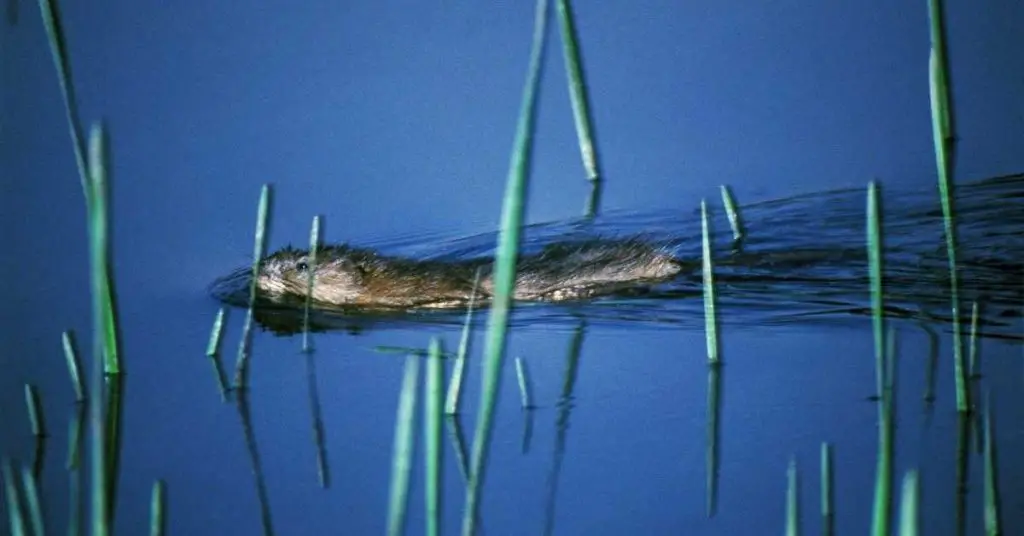
How To Get Rid Of Rats In Your Pond
If you already have rats in, or more likely around, your backyard pond you’ll have to do something to get rid of them. Thankfully there are quite a few options available that should have your pond rat-free in short order.
Cats Are A Natural Rat Deterrent
Cats are perhaps the best prevention and remedy to any vermin problem including rats. Cats are naturally attracted to rats while rats are naturally afraid of cats, so it’s a win-win scenario.
You likely already have a cat of your own or at least know of neighborhood cats that visit your property regularly. Try to encourage them to nose around your pond as much as you can. The cat’s scent will serve as a warning signal to any would-be rat residents and the cat will quickly hunt out any rats already present at your pond as well.
One helpful trick if you don’t have a cat of your own is to befriend a neighborhood cat. Most residential neighborhoods have outdoor cats that visit regularly and can be tempted to spend more time at your pond. You might even want to feed the cat a small treat once you’ve lured it to the pond. This will cause the cat to make your pond part of it’s daily patrol route.
I love this strategy because it’s all natural and ultimately doesn’t involve killing any rats since the cat’s scent will keep them away to begin with. Cats are by far the most effective rodent prevention system available.
Just be sure that your pond is deep enough if you have any fish as any of them caught in shallow water will be easy-pickings for the cat!
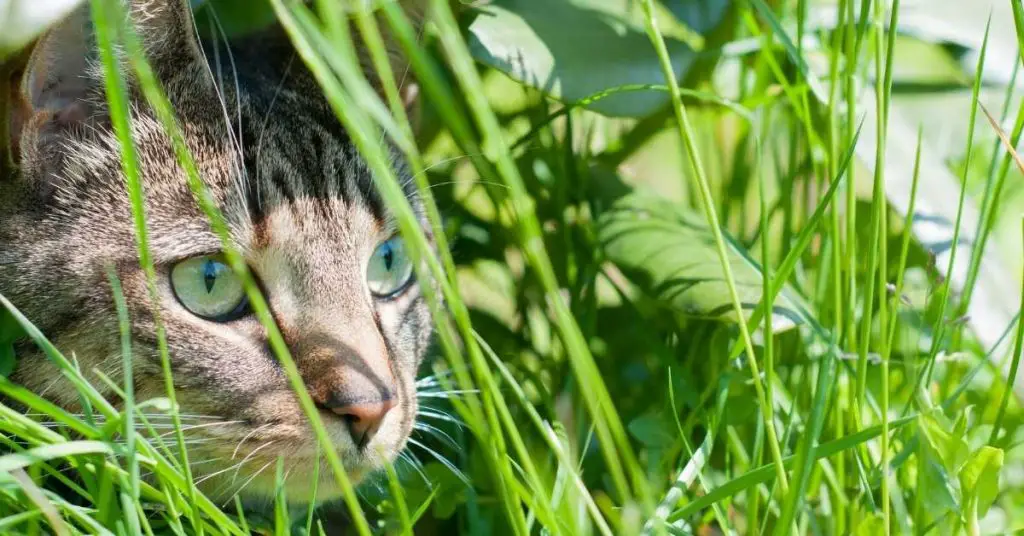
Traps Are An Option To Humanely Eliminate Rats
Traps are probably the most common way to deal with a rat problem. Rat traps will either catch or immediately kill any rat that steps on the trigger.
Since you will be placing these traps outdoors and potentially coming into contact with other animals, I recommend using a live rat trap instead of a snap trap. This will allow you to release any small non-vermin animals that might accidentally walk into your trap.
You will need to keep in mind where the rats are coming from before placing the traps. You will probably have good luck putting them as close to the pond as possible.
Once you catch one or more rats, you’ll have to have a plan to dispose of them. You can either release them somewhere far away or humanely kill them. You may want to contact a pest control agency if you take this route as there may be certain rules to know about disposing live animals depending on where you live.
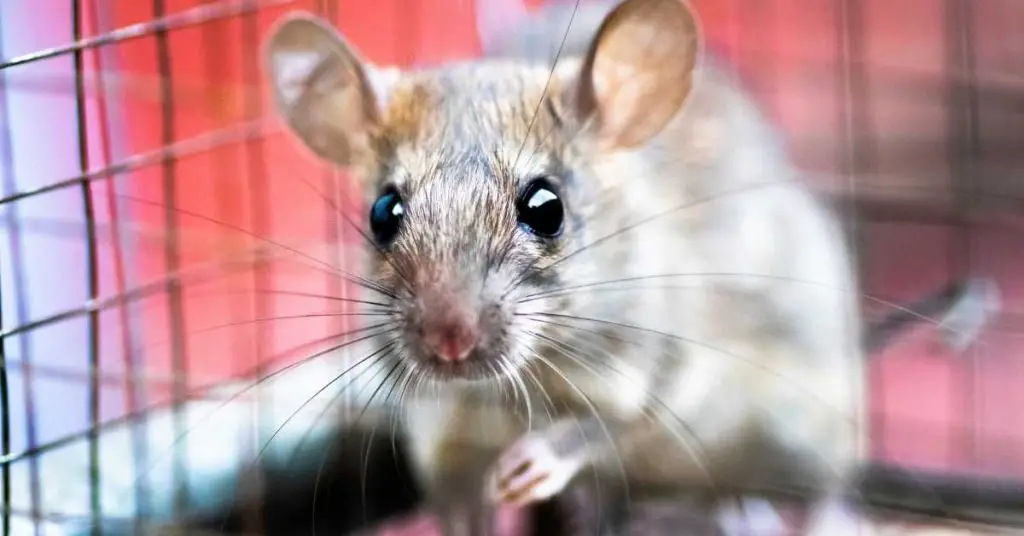
Rat Poison Should Not Be Used Near An Outdoor Pond
I don’t recommend using any loose poisons around your pond as this could pose a hazard to any wildlife that lives nearby.
How To Prevent Rats In Your Pond
The best solution to keeping rats away from your pond is to keep them away to begin with. Here are a few preventative measures you can take to keep your backyard pond rat free.
Pets Can Help Prevent Rats
Pets such as cats and dogs are the best way to keep rats away from your pond, as I mentioned earlier.
But the key is to encourage your pets to spend as much time around the pond as possible. This will give them a chance to both sniff out any rats that already have a home in your pond as well as to leave their scent.
The more fur and dandruff your pet leaves near the pond the more of its scent will be present. This will survive as a powerful warning signal to any rats and other vermin in the area. It is by far the most powerful solution.
Remove Any Potential Shelter To Minimize Rats Near Your Pond
In order to decrease the desirability of your pond as a haven for rats you’ll want to minimize any potential rat shelters.
Rats love small areas like crevices between rocks or a thick spot of bushes or plants. Some of these areas will be difficult or impossible to remove due to the physical nature of your pond but you should try to leave as few spaces as possible for any rats to squeeze through.
And keep in mind that a full grown rat can squeeze into a space only 15mm wide!
Don’t Leave Excess Fish Food Near Pond
This measure can’t be overstated – keep your garden or backyard pond clean.
That usually means not leaving any extra fish food floating on the surface of your pond, but also around the pond as well.
And if you occasionally have picnics or otherwise eat around your pond, be sure to clean things up completely when you’re done. Rats are very clever so if they find food in a certain spot more than a few times, they will continually come back expecting to find more.
Final Thoughts
As beautiful and attractive as your backyard pond is, it is also a major attraction to rats.
Rats love any space that will give them shelter, the opportunity to source food as well as a drink of water – your pond is going to be a haven for rats if you don’t take any preventative measures.
Take note of any new rats near your pond and be prepared to plan a course of action. One sign to look out for is the water level of the pond suddenly lowering as this could be a clue that rats have chewed through the pond liner below.
You Might Also Enjoy: 51 Backyard Pond Ideas – Visual Inspiration For Your Next Garden Pond Project
Related Posts:
- How Often Should I Clean My Backyard Pond?
- How To Tell If A Pond Has Turned Over
- 5 Best Pond Vacuums for Small Ponds: Effective & Affordable!
- Backyard Pond Cost Per Year – Maintenance & Cleaning Costs Breakdown
Related Questions:
What Attracts Rats The Most?
Rats have a very good sense of smell and are most attracted to the smell of food and other organic waste commonly found around backyard and garden ponds. Keeping your pond clean and clear of all food waste is the best way to prevent rats from invading your space and damaging your pond.
Does Standing Water Attract Rats?
Rats need a source of fresh water to drink from so they are naturally attracted to standing bodies of water like puddles and ponds.
Do You Get Rats If You Live Near Water?
Rats require a regular source of fresh water as they cannot live only on the moisture of their food like mice. This is why you’re more likely to see rats near your property during the cold, wet months of fall and winter.
Should I Be Worried If I See A Rat In My Garden?
In general, seeing rats in your yard or garden is a bad sign as they they can damage your property and be carriers of disease. The best way to prevent rats is by keeping your property clean and free of organic food waste.
Will A Rat Eat Pond Fish?
Rats are scavengers and will gladly eat a small vulnerable fish if the opportunity presents itself. However, rats are much more likely to be attracted to any leftover fish food in or near your pond. To help prevent attracting rats to your pond, never overfeed your fish.

